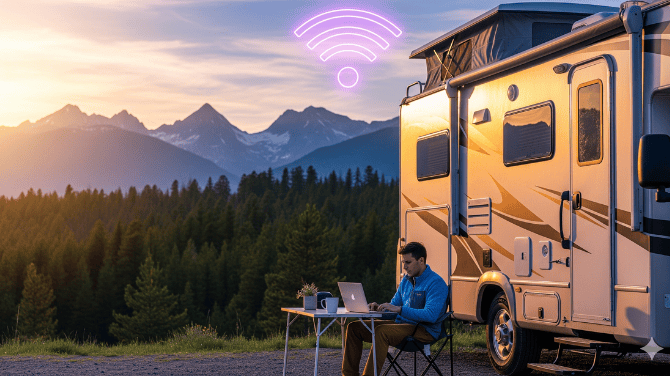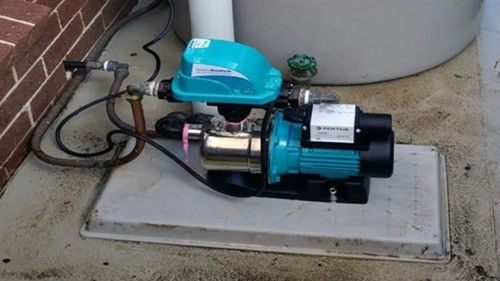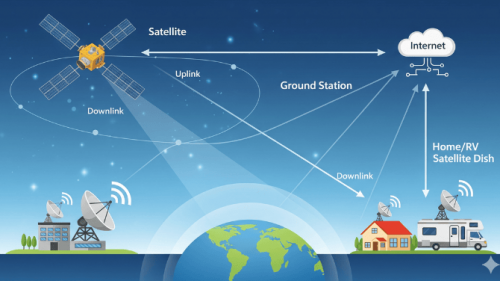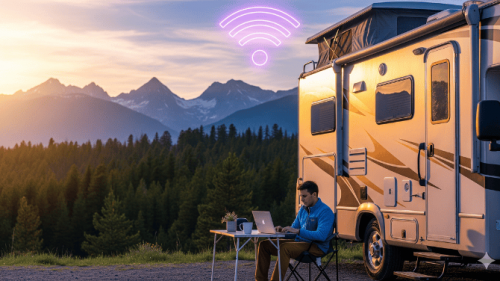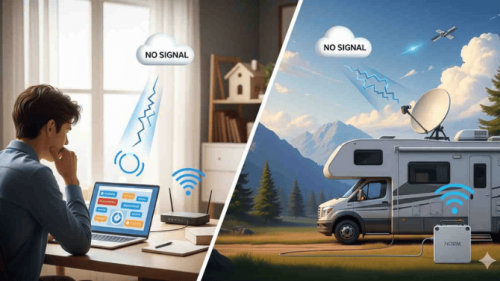For full-time travelers and weekend adventurers, staying online while living the RV lifestyle is essential. Whether it's for remote work, streaming, navigation, or staying in touch with family, reliable RV internet options can greatly impact your journey. The challenge is that getting internet on the road isn’t as simple as plugging into a cable provider. Different terrains, weather, and mobility needs require a more flexible approach. Let’s explore the best RV internet options available and see how Ubifi offers something unique for modern nomads.
Why Reliable Internet Matters for RV Nomads
Hitting the road in an RV often means moving from city to city, campground to campground, or off-grid. A stable internet connection is more than just a luxury; it means digital nomads can work, stream entertainment, and keep up with friends and family when they have free time. Traditional home broadband isn’t available on the road, so RVers have to find creative RV internet options that balances speed, coverage, and cost.
Mobile Hotspots and Cellular Data
One of the most common ways RVers connect is through mobile hotspots. These devices use cellular networks to deliver the internet wherever there is coverage. If you travel near populated areas, hotspots can provide dependable service. However, signal strength varies by location, and rural or mountain regions often lead to dropped connections or slower speeds.
Carriers also impose data caps and throttling, which can limit heavy streaming or work usage. For nomads who need consistent high-speed access, hotspots alone may not be sufficient.
Satellite Internet for RVs
Satellite internet has long been a solution for rural areas and is becoming more popular among RV travelers. Unlike cellular connections, satellites can cover remote and off-grid areas without cell towers. However, bad weather can affect performance. Installation and equipment costs are generally higher, and setup can feel technical for beginners.
Still, for travelers who prioritize availability over convenience, satellite remains a strong option for RV internet.
Public Wi-Fi at Campgrounds and Cafés
Campgrounds, RV parks, and local coffee shops often offer free Wi-Fi. While this is appealing at first, shared networks typically struggle with speed and security. When many users browse and stream at the same time, connections slow down quickly. Public Wi-Fi also exposes your data to security risks, making it less suitable for remote work.
This option is best for light internet tasks, like checking email or looking at maps. But for full-time RV nomads, relying solely on public Wi-Fi can be frustrating.
Fixed Wireless Internet
Fixed wireless internet uses towers to deliver broadband signals to specific areas. Some RV travelers choose this option when parked for extended periods. While it can provide solid speeds, availability is limited to regions where providers operate. It’s not the most practical solution for constant travel, but it works well for semi-stationary RVers who spend weeks or months in one place.
Why Ubifi Stands Out Among RV Internet Options
Ubifi truly makes a difference in the RV internet landscape. It combines the flexibility of mobile data with the reliability RV nomads need. By offering nationwide 4G LTE coverage that utilizes strong cellular networks, Ubifi ensures travelers can stay connected in both urban and rural areas. Unlike traditional mobile plans, Ubifi focuses specifically on the needs of RVers, providing:
-
Broad nationwide coverage so you’re rarely out of range.
-
No long-term contracts, giving nomads freedom without being locked in.
-
High-speed performance optimized for work, streaming, and daily use.
-
Simple setup without the hassle of complex installation.
For digital nomads, this means less worry about losing signal during an important meeting or encountering throttled speeds halfway through a trip. Ubifi bridges the gap between convenience and reliability, making it a better choice compared to public Wi-Fi, costly satellite plans, or limited hotspot devices.
FAQs About RV Internet Options
1. What’s the most reliable RV internet option for full-time travelers?
The most reliable choice depends on your travel style. Satellite works well in remote areas, while cellular services like Ubifi offer consistent coverage and faster speeds in most regions. Many nomads use a combination of both for flexibility.
2. Can I work remotely with RV internet?
Yes, remote work is possible with RV internet, as long as you choose a service with dependable speed and coverage. Ubifi, for instance, supports video calls, large file uploads, and other tasks that need steady connectivity.
3. Is satellite internet worth the cost for RVers?
Satellite internet can be worth it if you often travel off-grid. However, it comes with higher setup costs and sensitivity to weather. Many RVers prefer cellular solutions unless they frequently camp in very remote areas.
4. How do data caps affect RV internet users?
Data caps can limit streaming and heavy downloads, especially for families. Once you exceed your limit, speeds may drop, affecting performance. Services like Ubifi offer plans designed to reduce such restrictions.
5. Is campground Wi-Fi safe to use?
Campground Wi-Fi is convenient but not secure. Always use a VPN when connecting to public networks. For important tasks like banking or work, a personal RV internet option is safer.
6. Why should I choose Ubifi over a regular hotspot plan?
Unlike basic hotspots, Ubifi provides optimized high-speed coverage designed for RV travelers. With a wider range, simpler setup, and no rigid contracts, it meets the needs of nomads who require reliable service while on the go.
Final Thoughts
Finding the best RV internet options involves balancing coverage, speed, and convenience. While mobile hotspots, satellite services, and campground Wi-Fi have their place, they often do not meet all the needs of full-time RVers. Ubifi stands out by offering a tailored solution that combines flexibility, reliability, and performance, helping nomads stay connected wherever the road takes them.
